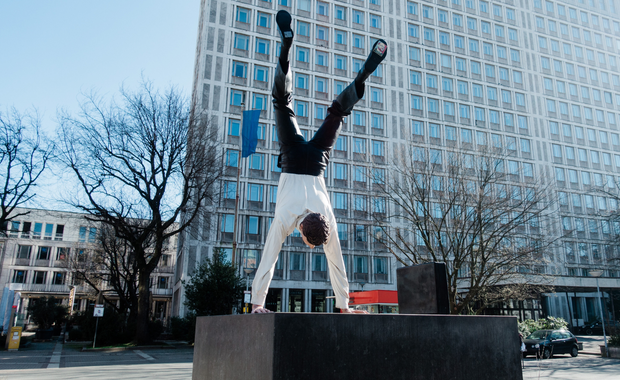Change Your Mindset
How to Fast Track Your Career for Guaranteed Success
Significance of soft skills for millennials in today’s world

Soft skills are known by different names globally. People are often confused with communication skills, emotional intelligence, life skills, and people skills to name a few. Additionally, they are known by different names in some countries. But basically, soft skills are the skills, abilities, and traits of personality, attitude, and behavior. They make a difference in personal, professional, and social life. They help people grab employment opportunities and stay in a job for a longer duration with pleasing and polite behavior.
Soft Skills
The skills and abilities essential for students who pass out from educational institutions to get adjusted to the industrial front that is more especially connected to communication skills are known as soft skills. These are known as social skills, people skills, and emotional intelligence.
These are also known as life skills. Soft skills are all about anything other than domain knowledge. They are also about interpersonal relations, the attitude to develop as an individual, and, above all, the personal grooming to face challenges in day-to-day life in the corporate world.
With the changing business environment, the competition for job acquisition and job sustainability is intensifying. To get an edge over others in the competitive market, students must complement their hard skills with soft skills to exhibit their real potential. While hard skills are academic skills, knowledge, experience, and level of expertise, soft skills are self-developed, interactive, communication, human, and transferable skills.
To survive in today’s challenging global environment, most employers focus on employing, retaining, and promoting people who are dependable, resourceful, ethical, self-directed, have effective communication, willing to work and learn with a positive, right, and strong attitude.
Soft vs. Hard Skills
Soft skills are different from hard skills. Hard skills are technical skills and domain skills while soft skills are non-domain skills. Hard skills are tangible that are measurable and quantifiable while soft skills are intangible that cannot be easily measured and quantified. Hard skills are about what you speak while soft skills are about how you speak with others.
Soft skills are a polite and pleasing way of communicating with others while hard skills are what you contribute to the workplace. Soft skills complement your hard skills. Precisely, soft skills are a presentation of your hard skills in the workplace. Soft skills are interpersonal skills while hard skills are job-related skills.
If hard skills are infrastructure soft skills are superstructure. If hard skills are the foundation soft skills are the cement. A judicious blend of both hard and soft skills is essential to achieve your professional success and fast-track your career.
You can find hard skills on a resume while you can find soft skills during the employment interview. Hard skills get you an interview while soft skills help you get your employment. Hence, both hard and soft skills are essential to get a job. After joining employment, soft skills help you survive in the workplace while hard skills help you prove yourself professionally. Hence, blending both hard and skills is imperative in the workplace.
According to Anthony Robbins, there is a famous story told about Tom Watson, the founder of IBM. One of his subordinates had made a terrible mistake that had cost the company ten million dollars. He was called into Watson’s office and said, “I suppose you want my resignation.”
Watson looked at him and said, “Are you kidding? We just spent ten million dollars educating you.” Tom Watson emphasized the importance of costly corporate education with his soft skills. Similarly, one of the technicians in the Indian Air Force made a blunder resulting in the crash of military aircraft that had cost hugely with the pilot ejecting out safely with his parachute.
The technician was called into the commander’s office and the commander looked at the technician and said, “Indian Air Force invested huge money to train you in aircraft. Remember, military education is very costly.” Hence, you can understand the significance of soft skills in expressing hard skills in a positive, polite, pleasing, and polished manner.
It is easy to measure hard skills while it is hard to measure soft skills. It is easy to teach hard skills while it is hard to teach soft skills. Usually, teachers teach hard skills while trainers train soft skills. Since soft skills are behavioral skills, it requires extra efforts on the part of trainers to use various tools and techniques including interaction, role-plays, active participation, and experiential learning to bring out the desired behavioral changes in the participants.
Soft Skills for Millennials
Millennials need soft skills along with hard skills. Most millennials are busy with their smartphones with less interaction with others. Hence, they must acquire soft skills to get along with others.
The older generations had more physical interaction and developed soft skills. But the millennials must work hard to acquire soft skills the way they acquire hard skills. A proportional mix of hard and soft skills is essential to achieving professional success and a fast-track career.
Millennials are brilliant. They are updated with the latest technology and are aware of leveraging technology effectively. But most of them are addicted to technology. They associate less with others leading to social challenges because they don’t know how to get along with others. They use more of their brain than brawn because they hardly focus on physical activities leading to health challenges.
How to Acquire Soft Skills?
You can acquire soft skills by various means including observation, reading, training, experience, and practice. Soft skills training equips you with skills, abilities, and knowledge.
However, your interaction with others helps acquire soft skills greatly. Since soft skills are behavioral skills, people must learn by trial and method by using their emotional intelligence, and through flexibility and adaptability. You must be practical, realistic, and situational to acquire soft skills. Above all, you must learn from your failures to improve your behavior to jell well with others effectively.
To improve soft skills, you must develop emotional intelligence and interpersonal skills. You must observe and understand people and their behaviors. Travel to unknown destinations to understand people. Talk to them to get along with them.
Understand their cultures and behaviors. Traveling teaches tolerance and improves soft skills. When you travel to unknown destinations and communicate in a non-native language, you will be able to improve your soft skills effectively.
Final Thoughts
The professional world of learning and development has undergone tremendous change in the 21st century. Gone are the days when all sectors underscored technical skills alone. Currently, there is a change in the mindset of companies to highlight hard and soft skills. Companies search for a perfect blend of both soft and hard skills among employees to deliver goods and services effectively to their clients. To conclude, both hard and soft skills are essential to achieving professional success. Hence, blend them judiciously to fast-track your career.
Change Your Mindset
Peter Drucker’s Life Lessons Every Leader Needs to Hear
He believed life had no meaning if it was only about work

Peter Drucker is widely celebrated as the father of modern management. But beyond his groundbreaking theories and contributions to business thinking, Drucker lived a remarkably full and meaningful life, one that offers powerful lessons on leadership, balance, time management, and the pursuit of purpose. (more…)
Change Your Mindset
The Leadership Skill Nobody Talks About (But Changes Everything)
Curiosity often takes a back seat to certainty and gets labeled as a soft skill, which makes it sound obvious and easy

Most of us, when faced with challenges, instinctively seek certainty and answers. In turn, our ego steps in and prompts us to defend our views, double down, or perhaps disengage. (more…)
Personal Development
Want to Change the World? Start by Sharing Your Knowledge
When we’re exposed to new perspectives, our thinking expands, and so does our potential to create

The Power of Ideas
In October 1904, during a thirty-six-hour train journey from Johannesburg to Durban, Mahatma Gandhi read Unto This Last by John Ruskin, a book that would radically alter the course of his life. Reflecting on that night, Gandhi said, “I could not get any sleep. I was determined to change my life by the ideals of the book.” (more…)
Personal Development
Burned Out at Your Desk? Try This 5-Minute Mental Reset
This kind of fatigue doesn’t always feel dramatic, but it’s deadly for momentum

-

 Success Advice3 weeks ago
Success Advice3 weeks agoThe One Mindset Shift That Made Me Irreplaceable At Work
-

 Scale Your Business4 weeks ago
Scale Your Business4 weeks agoWhy Smart Entrepreneurs Never Skip This One Business Expense
-

 Success Advice3 weeks ago
Success Advice3 weeks agoHow Playing by the Rules Became the Smartest Business Strategy
-

 Did You Know2 weeks ago
Did You Know2 weeks ago7 Surprising Life Lessons Video Games Taught Me That School Never Did
-

 Success Advice2 weeks ago
Success Advice2 weeks agoHow to Build Trust, Kill Micromanagement, and Lead a Team That Thrives
-

 Scale Your Business2 weeks ago
Scale Your Business2 weeks agoHow to Build a Workplace People Actually Want to Show Up To
-

 Success Advice2 weeks ago
Success Advice2 weeks agoSuccess Isn’t Sexy: 5 Daily Habits That Actually Work
-

 Scale Your Business2 weeks ago
Scale Your Business2 weeks agoHow Smart Entrepreneurs Cut Financial Chaos in Half with One Simple Switch






























1 Comment